It’s been a watershed year for Pacific Island staff and students at Te Herenga Waka—Victoria University of Wellington. We spoke with Assistant Vice-Chancellor (Pasifika) Lumanuvao Dame Winnie Laban, along with Pasifika engagement adviser Fabiefara (Fabie) Filo, president of the Pasifika Students’ Council (PSC) Edwina Harris, and a group of students from Tongan, Sāmoan, Ni-Vanuatu, i-Kiribati, and Tuvaluan backgrounds, about their experiences of being Pasifika at the University.
“Our Pasifika students are all leaders,” says Dame Winnie. “And they bring richness and culture, and also knowledge and language, to the life of the University. It’s not just them coming and learning, they also contribute those perspectives. They come and achieve and give back to our people.”
While this year included a fresh outbreak of COVID-19 and associated lockdown, it also included the next steps in design and approvals for New Zealand’s Fale Malae, the establishment of a Pasifika science, technology, engineering, and maths (STEM) room, and the very first Pasifika Week, organised by the Pasifika Student Success team, the Office of the Assistant Vice-Chancellor (Pasifika), and the PSC.
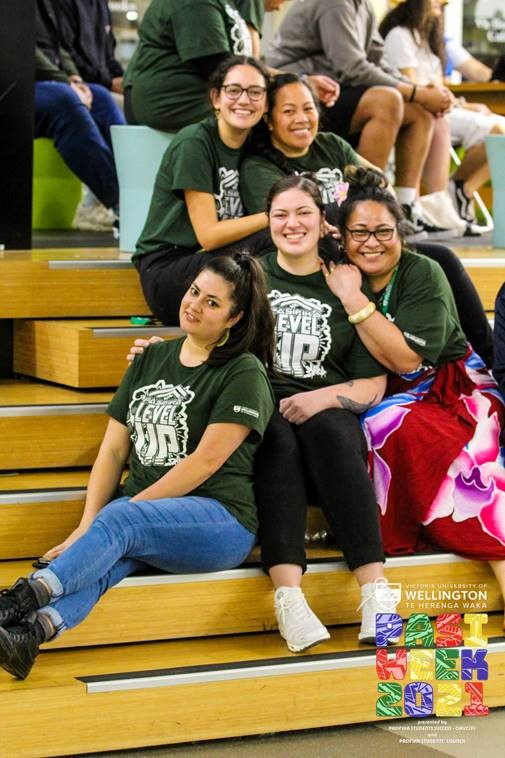
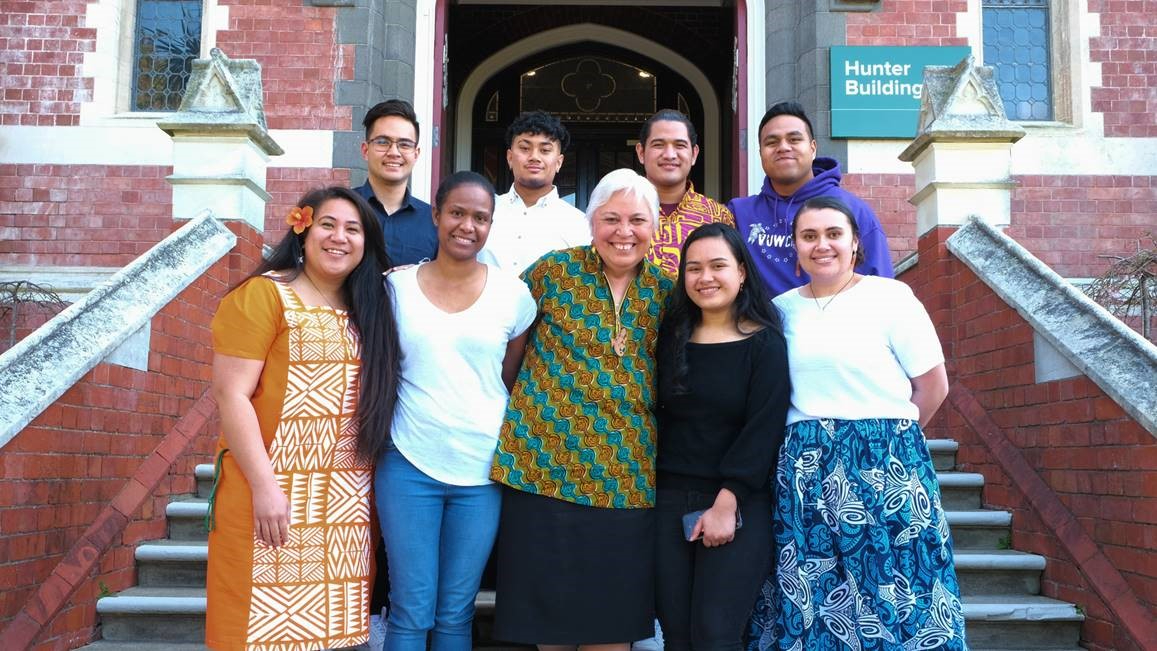
Front: Fabiefara Filo, Felisa Lini, Luamanuvao Dame Winnie Laban, Titi Homasi, Edwina Harris.
Image credit: Laura Sissons.
Right: Pasifika staff Rhegan Tu'akoi, Gail Ah-hi, Kalo Afeaki, Teneya Nicol and Eseta Malua-Faafia.
Image credit: Lionel Taito-Matamua.
As soon as New Zealand moved to alert level 4 in August 2021, the Pasifika Pillars group (Pasifika Student Success team and academic and professional support staff) sprang into action, ensuring students had access to the technology they required to study from home, and supporting them to get extensions and mental health support where required.
Design student Ryan Simpson says his study programme is reliant on having the right software and computational power. “The University’s surveys to establish who needed a computer and software were important. Our engagement adviser, Lionel Taito-Matamua, arranged to get laptops with the appropriate software to those who needed them during alert level 3. That was a big help.”
“For those of us not from New Zealand, it was really tough living away from home. But we felt safe and comfortable here over lockdown, thanks to our community,” says Neemia Malele, who is from Sāmoa and lives in Pasifika housing on Salamanca Road.
“For me, I felt comfortable opening up and letting my adviser know I wasn’t well and I needed that help. This year, it was just harder. I’ve been away from Vanuatu for three years, which I didn’t really sign up for,” says Felisa Lini.
“We had a lot of Zoom events for Tongan Language Week, which I appreciated. We are all busy with different classes, so it was good to have it all right there,” says Mosi Moala-Mafi, a Tongan and i-Kiribati student.
Pasifika Week, held in July, was born from a discussion between Edwina and Fabie.
“We spoke about wanting to celebrate Pacific students and culture. And in the light of the Dawn Raids apology, we wanted to promote to our students that you could—and should—be proud to be Pasifika. It soon escalated from a launch celebration for the special Pacific student magazine Wan Solwara to an entire week of celebrations,” says Edwina, who is Tokelauan and Palagi. “We want to normalise the Pasifika presence in higher education spheres and celebrate the diversity of our students.”
“I had been offered places at other universities, but Aunty Winnie and Trudy actually came and talked to me about the University, and I really appreciated the fact they were looking for young Pasifika students to come to Wellington’s university.”
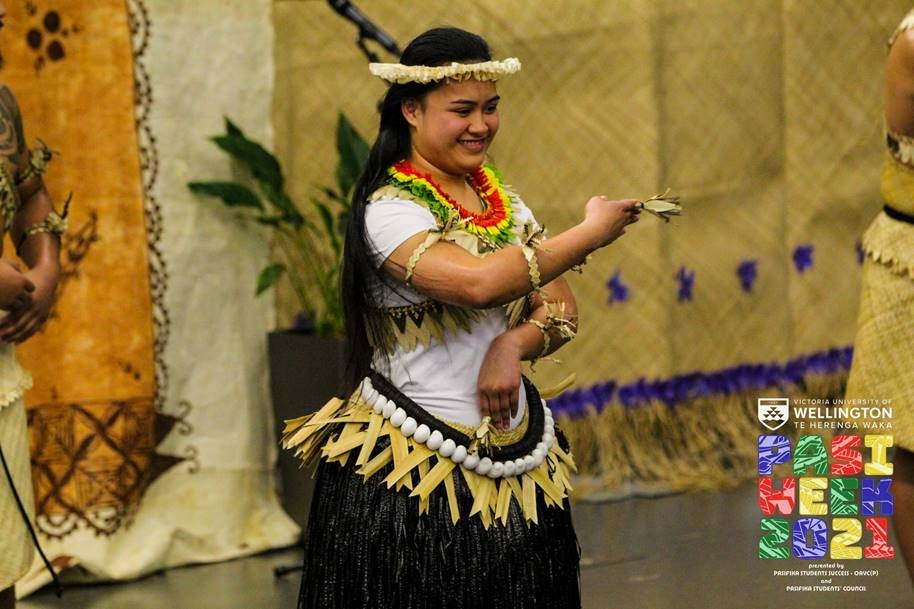
Image credit: Lionel Taito-Matamua
The week included the launch and an exhibition of Pacific art at Te Aro campus, hangouts, movie nights, a market day, and a cultural night in the Hub.
“The event was a success because it was a collaboration with our student body, and that’s very important for our group. We need to make sure our students’ voices are heard and present,” explains Fabie, who is Sāmoan.
When Mosi was a student—and head prefect—at Scots College and deciding where to study, the visit he received from Dame Winnie and her senior adviser, Trudy Lagolago, made all the difference.
“I had been offered places at other universities, but Aunty Winnie and Trudy actually came and talked to me about the University, and I really appreciated the fact they were looking for young Pasifika students to come to Wellington’s university,” he says.
Edwina says the Assistant Vice-Chancellor’s office staff also support people to explore their individual cultures. “When I first came to the University, I didn’t have any connection to Pasifika student culture, as I was several years out of school. But I walked into a mentoring session, and Fabie spotted me and was friendly—and that was the push to help me find my Pasifika student community in the University.”
The Pasifika Student Success team does its best to support all Pasifika languages and cultures, says Edwina.
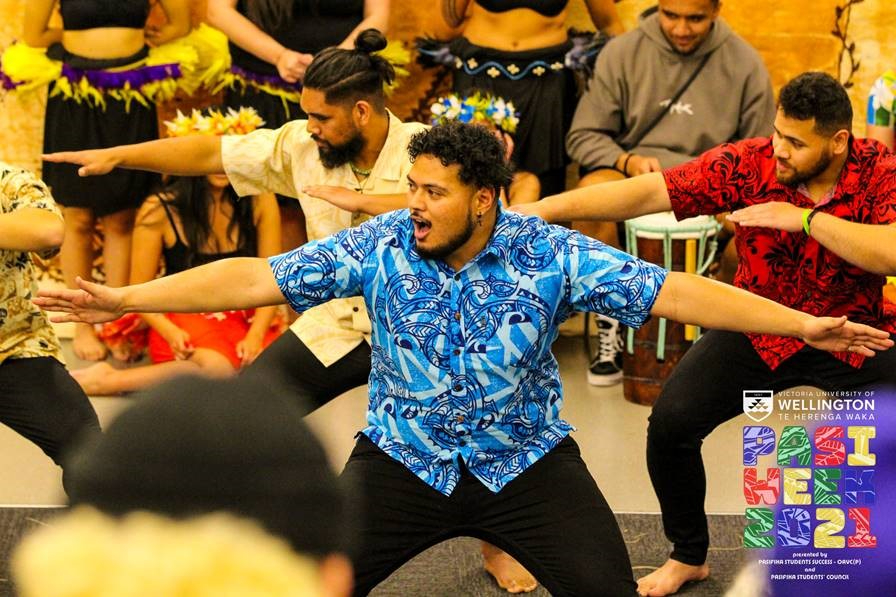
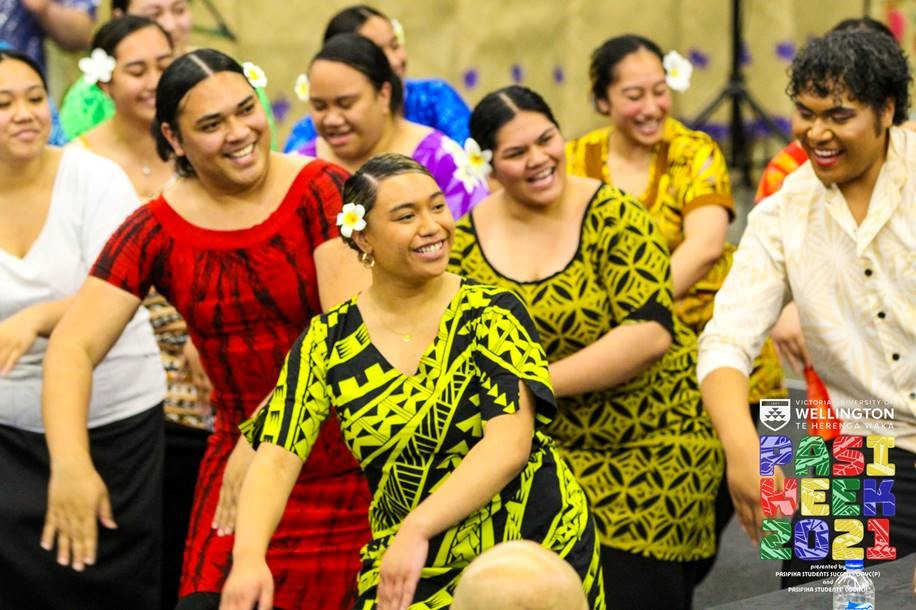
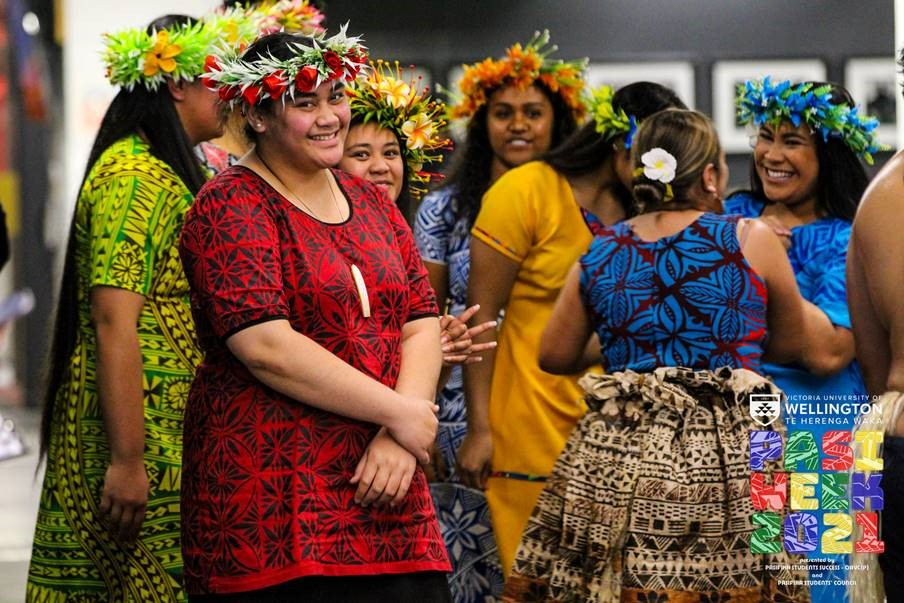
“In celebrating each language week, the PSC ensured they reached out to students of the ethnicity, language speakers, and tried to get them involved in some of the planning,” she says.
Titi Homasi is part of a small group of Tuvaluan students at the University, and as well as being involved in the cultural performance night during Pasifika Week, she and a group of students were invited by Dame Winnie to perform at the third Pacific Ocean Pacific Climate Change Conference in 2020.
“We sang a song in our native language, which simply means Tuvalu is going to go underwater soon, and where are we going to go? It was very emotional for me. That was the first time in a long time that Tuvaluan songs had been performed at the University, and I was so grateful to Aunty Winnie for letting me do what I love doing.”
Titi is studying for a Bachelor of Biomedical Science and has used the Pasifika STEM space, but she says her adviser, Teneya Nicol, is happy to meet wherever, whenever. “I go to her whenever I have trouble. She’s got my back all the time.”
Many of the students were also part of the group to support the next stage of the design process for the Fale Malae, with i-Kiribati student Aaron Itinteang, for example, appearing in media to back the project. The Fale Malae now has in-principle support from Wellington City Council to be built at Frank Kitts Park.
“I think having something that represents Pasifika people as a whole is important. It’s important for Pasifika people, and future students, to have something where they can see that our perspectives, our creative ways of building are appreciated in the city,” says Aaron.
“We just want to make sure that wherever you call home, you can find your community here at Te Herenga Waka—Victoria University of Wellington,” says Fabie.
Dame Winnie explains, “It’s about Aotearoa’s maturity around acknowledging that she’s a Pacific nation located in the Pacific Ocean.”
And the future is rosy for Pasifika at Te Herenga Waka. Jaistone Finau, the 2021 President of Tauira Pasifika, has been elected to be a student representative on Te Herenga Waka—Victoria University of Wellington Council. Jaistone is of Sāmoan, Tokelauan, Tuvaluan, and i-Kiribati descent, and will be the first Pasifika representative on the Council from 1 January 2022 for the following two years.


